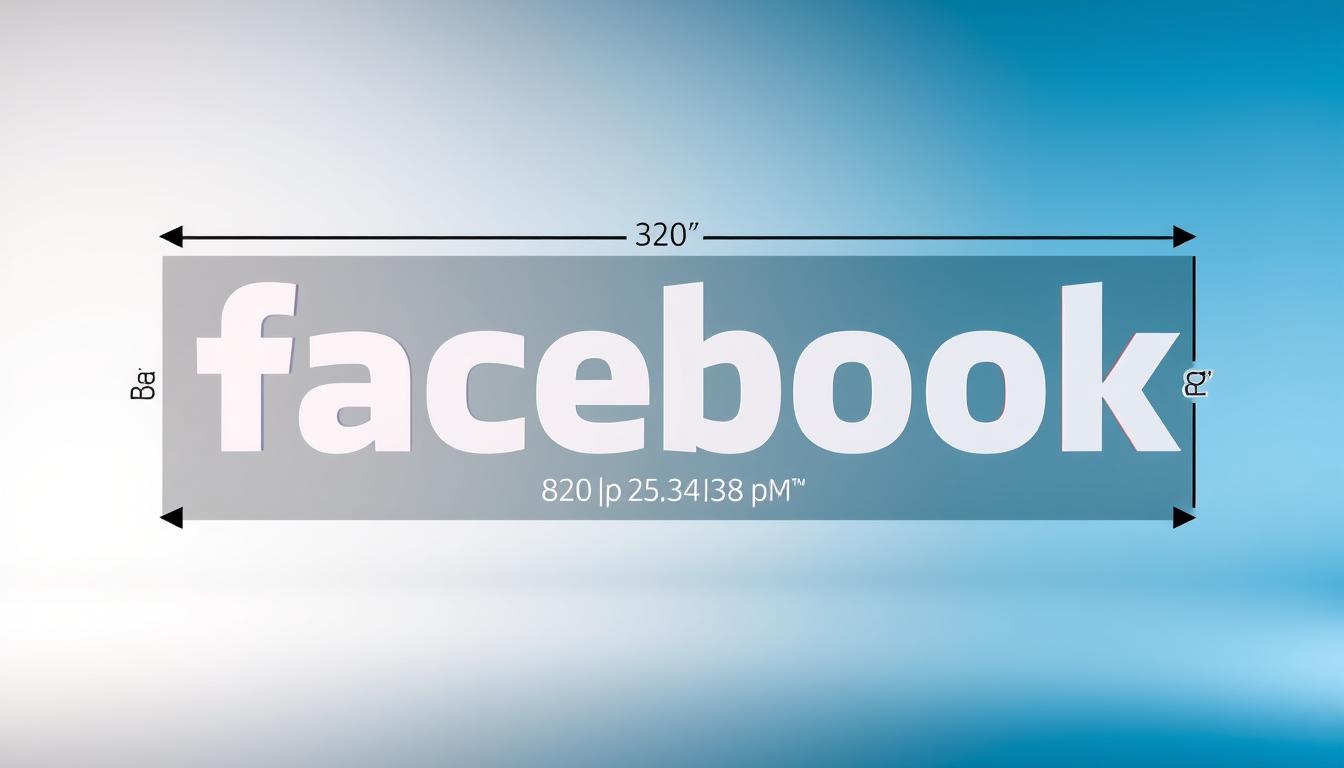FTC disclaimer: This post contains affiliate links and I will be compensated if you make a purchase after clicking on my link.
Blockchain platforms are changing the game in tech. They’re making big impacts on data management, money transactions, and supply chains. But, with so many choices, how do you pick the right one for you? This guide will help you find the best blockchain platforms for your needs.
Ever thought about what makes top blockchain platforms stand out? They’re changing industries in big ways. From Ethereum’s decentralized approach to IBM Blockchain’s business solutions, the field is wide and varied. Join us as we look at the top platforms, their strengths, and how they can help your business grow.
Key Takeaways
- Explore the top blockchain platforms shaping the industry, including Ethereum, Hyperledger, and Corda.
- Understand the unique features and benefits that each platform offers, from smart contracts to enterprise-grade security.
- Discover how leading companies are leveraging blockchain technology to streamline operations, enhance transparency, and drive innovation.
- Gain insights into the growing adoption of blockchain platforms across various industries, from finance to supply chain management.
- Learn about the latest advancements and trends in the world of blockchain, empowering you to make informed decisions for your business.
What is a Blockchain Platform?
The Blockchain Technology, also known as Distributed Ledger Technology (DLT), is a new way to record digital transactions. It’s decentralized, transparent, and secure. This tech makes sure data stays the same once it’s recorded.
At its core, blockchain uses cryptographic hashing and a network of computers. Together, they create a chain of blocks that can’t be changed. That’s why it’s called “blockchain.”
Understanding the Basics of Blockchain Technology
Blockchain organizes data into blocks linked together. Each block can hold only so much information. When it’s full, it’s closed and linked to the previous one.
This creates a chain. A network of computers checks, records, and shares the transactions. This makes everything transparent and secure.
The Role of Blockchain Platforms in Application Development
Blockchain platforms, or blockchain frameworks, help build apps based on blockchain. They offer software, infrastructure, and services to make app development easier. This way, developers can focus on creating new ideas without worrying about the tech behind it.

“Blockchain technology has the potential to transform industries and create new business models by enabling secure, transparent, and efficient transactions.”
Many Blockchain Platforms have helped blockchain technology grow. It’s now used in finance, supply chain, healthcare, and more. These platforms help developers create new apps and drive innovation in the digital world.
Benefits of Using Blockchain Platforms
Blockchain platforms have many benefits for businesses and organizations. They help improve productivity and prevent fraud. They are great for many industries.
Comprehensive Resource Hub
Blockchain platforms are like a one-stop shop. They give you everything you need to build decentralized apps. This makes it easier and faster to get your apps out there.
Enhanced Productivity
Blockchain makes it easy for businesses to deal directly with customers. This means more work gets done and less money is wasted. Smart contracts also make things more efficient by doing tasks automatically.
Fraud Prevention
The blockchain is very hard to change, which helps stop fraud. It keeps a record of everything that happens. This is great for keeping data safe in places like finance and healthcare.
| Industry | Blockchain Benefits |
|---|---|
| Supply Chain | Improved trust, visibility, process streamlining, and quicker issue resolution |
| Banking and Finance | Friction removal, operational efficiency enhancement, and delays minimization |
| Healthcare | Enhanced data security, easier data sharing, and patient empowerment |
| Pharmaceuticals | Audit trail maintenance, counterfeit prevention, and rapid product recall |
| Government | Improved data sharing, trust, compliance, citizen services, and audit trails |
| Insurance | Automated processes, fraud reduction, and cost optimization |

“Blockchain platforms enable enhanced security, transparency, and efficiency, making them a game-changer for a wide range of industries.”
Types of Blockchain Platforms
In the world of blockchain, there are many platforms to choose from. Each has its own special features. The main types are Public Blockchain, Private Blockchain, Consortium Blockchain, and Hybrid Blockchain.
Public Blockchain
Public blockchains like Bitcoin and Ethereum are open to everyone. Anyone can join and help manage the network. They are very secure and transparent because many nodes work together.
Private Blockchain
Private Blockchain platforms are only for certain people. They are fast and private because a single group controls them. Companies use them for things like checking their assets and tracking supplies.
Consortium Blockchain
A Consortium Blockchain is a mix of public and private. It’s run by a group of organizations. This way, they get the best of both worlds, more trust and control.
Hybrid Blockchain
The Hybrid Blockchain combines public and private features. It lets businesses control who sees what, but still uses a decentralized network. It’s good for balancing privacy and openness.
Choosing a blockchain platform depends on what you need. You should think about security, how big it can grow, privacy, and how decentralized it is.

Ethereum: The Pioneer in Blockchain Platforms
Ethereum was introduced in 2013. It’s one of the oldest and most established blockchain platforms. It has a decentralized network like Bitcoin’s but supports smart contracts and true decentralization.
Ethereum has a big ecosystem for smart contracts and an active developer community. This includes the Enterprise Ethereum Alliance.
But Ethereum faces challenges like slow processing times and high transaction costs. To fix this, Ethereum moved from proof of work to proof of stake, known as Ethereum 2.0 or Beacon Chain.
This change aims to make Ethereum better for enterprises and developers. It wants to improve scalability, security, and sustainability for building decentralized applications (dApps).
| Ethereum Highlights | Statistics |
|---|---|
| Recognized as a pioneer in blockchain platforms | Ethereum is highlighted as the leading choice for enterprise adoption in 2024 due to its open-source nature, robust developer community, and established smart contract functionality. |
| Flexibility and adaptability for developers and enterprises | Ethereum’s EVM supports true decentralization and smart contracts, enabling a mature ecosystem of tools for writing smart contracts and an active developer community. |
| Transition to Ethereum 2.0 (Proof of Stake) | The migration to a more energy-efficient proof of stake (PoS) consensus mechanism aims to improve Ethereum’s scalability, security, and sustainability. |
Ethereum keeps evolving and adapting to the needs of the decentralized application ecosystem. It’s becoming a top choice for enterprises and developers looking for a reliable and versatile blockchain platform.

IBM Blockchain: Enterprise-Grade Solutions
IBM Blockchain is a private, decentralized network. It’s a top choice for businesses. It works well with cloud and old systems.
The IBM Blockchain tool is easy to use and can be changed to fit your needs. It’s helped in finance, banking, and supply chain. Success stories include IBM Food Trust and a project in Thailand.
IBM Blockchain meets the needs of big companies. It helps in banking, finance, health, science, and government. It makes data safe and cuts down on problems.
The IBM Sterling Transparent Supply helps with supply chain. The IBM Food Trust supports food industry goals. It helps everyone in the network.
IBM gives lots of help and advice. They have guides on blockchain, like supply chain and digital identity. You can also talk to IBM for special services.
IBM Blockchain is a top choice for big companies. It’s flexible, customizable, and has solutions for many industries. It helps businesses use blockchain to improve.
“IBM Blockchain is a game-changer for enterprises, providing a robust and scalable platform to drive innovation and optimize business processes.”
| Key Benefits of IBM Blockchain | Key Statistics |
|---|---|
|
|
Hyperledger Fabric: Modular and Secure
Hyperledger Fabric is a top blockchain platform backed by the Linux Foundation. It’s made for businesses to use blockchain safely and effectively. It has many parts that can be changed to fit different business needs.
This platform is great for keeping data safe. It lets companies share private info only with those who need it. This is super important in finance, healthcare, and supply chain.
Hyperledger Fabric also makes transactions fast and smooth. It’s perfect for companies wanting to improve their work flow. With over 120,000 organizations and 15,000 engineers working on it, it keeps getting better.
| Key Statistics | Value |
|---|---|
| Organizations Collaborating | Over 120,000 |
| Engineers Collaborating | 15,000+ |
| Companies in the Network | 148 |
| Lines of Code | 18.4 million |
Hyperledger Fabric is easy to add to what you already have. This makes it easy for businesses to make it work for them. It helps companies work better and faster.
Hyperledger Fabric is a top pick for companies wanting to use blockchain. It’s safe, fast, and can be customized. As it grows, it will help shape the future of blockchain in business.
Best Blockchain Platforms
Choosing the right Top Blockchain Platforms can be tough. You have many options like Ethereum and IBM Blockchain. Also, new platforms like Hyperledger Fabric and Corda are coming up. We’ve made a list to help you find the best for your needs.
Ethereum is a big name in blockchain. It’s great for making Enterprise Blockchain Solutions. It supports smart contracts, which is why many people choose it.
IBM Blockchain is another big player. It’s made for big companies. It has top security and can grow a lot, making it good for Blockchain Development.
Hyperledger Fabric is good for those who want something flexible and safe. It’s open-source and backed by the Linux Foundation. It’s a great choice for Top Blockchain Platforms.
These are just a few of the many blockchain platforms out there. Each has its own strengths and uses. When you’re looking at Blockchain Development, think about what each platform offers. This will help you choose the best for your needs.
“The beauty of blockchain is that it allows digital information to be distributed but not copied. This has immense implications for the world.”
Choosing the right Top Blockchain Platforms depends on your business needs and your team’s skills. By looking at all your options, you can use blockchain to its fullest. This will help your company grow and innovate.
Corda: Tailored for Financial Institutions
Corda is a blockchain platform made for the financial services industry. It’s different from other blockchains because it focuses on quick transaction processing. It also makes it easy to use smart contracts, which is great for banks and other financial groups.
Real-Time Transaction Processing
Corda can handle up to 1,000 transactions per second. This fast processing helps financial institutions work better. It cuts down on mistakes, makes workflows smoother, and reduces the need for middlemen.
Smart Contract Integration
Corda’s smart contracts bring more transparency and trust to financial dealings. They help manage risks better and save costs. This is because smart contracts make sure data is accurate and transactions are settled quickly.
Many financial institutions use Corda. Over 300 companies in more than 60 countries have joined. Banks like HSBC, BNP Paribas, and Deutsche Bank have seen big improvements. They’ve cut down on processing times and costs a lot.
“Corda’s real-time transaction processing and smart contract integration have revolutionized the way financial institutions operate, driving increased efficiency, transparency, and cost savings.”
Hyperledger Sawtooth: Versatile and Scalable
Hyperledger Sawtooth is a blockchain platform known for its flexibility and growth. It’s part of the Hyperledger community. This platform lets businesses pick from many consensus mechanisms to fit their needs.
Consensus Mechanism Flexibility
Hyperledger Sawtooth supports different consensus algorithms. This includes Proof of Elapsed Time (PoET) and Practical Byzantine Fault Tolerance (PBFT). Businesses can choose the best consensus for their needs, like speed, security, or how many transactions they need to handle.
Trusted Execution Environments
Sawtooth works with hardware security to create “trusted execution environments.” This boosts the network’s security and integrity. It’s great for industries like supply chain management that need strong trust.
Hyperledger Sawtooth’s design and consensus support make it a top choice for businesses. It can handle lots of transactions and keep the network consistent. This makes it a reliable and scalable blockchain platform.
| Feature | Description |
|---|---|
| Consensus Mechanism Flexibility | Sawtooth supports multiple consensus algorithms, including PoET and PBFT, allowing enterprises to choose the most suitable option for their use case. |
| Trusted Execution Environments | Sawtooth integrates with hardware-based security technologies to enable secure and trusted execution of program code. |
| Scalability and High Throughput | Sawtooth is designed to handle large-scale deployments and high transaction volumes, making it suitable for industries like supply chain management. |
| Modular Architecture | Sawtooth’s modular design allows for easy customization and integration with various applications and use cases. |
“Hyperledger Sawtooth’s support for multiple consensus mechanisms and its integration with trusted execution environments make it a versatile and scalable blockchain platform for enterprise-grade applications.”
Avalanche: Speed and Energy Efficiency
Avalanche is making waves in the blockchain world. It’s known for being the fastest smart-contracts platform. Users can build dApps quickly and cheaply. They can also scale up fast and create their own blockchains.
Avalanche is also great for the environment. It runs cool, using less energy. This is important as we all try to be more eco-friendly.
Avalanche has a special token called AVAX. There are 720 million tokens in total. As of September 19, 2024, 405.93 million are in circulation. The market value is $10.67 billion, with $478.71 million traded in a day.
Avalanche can handle up to 4,500 transactions per second. That’s much faster than Ethereum’s 14. On its best day, it did about 405 transactions per second.
Avalanche uses a special way to agree on transactions. It combines Proof-of-Stake and Directed Acyclic Graph protocols. This makes it safer and more stable. It also lets users decide on transaction fees, giving them more control.
“Avalanche’s speed and energy efficiency make it a compelling option for developers and users seeking a high-performance blockchain solution.”
In short, Avalanche is a big deal in the blockchain world. It’s fast, energy-efficient, and secure. As blockchain keeps growing, Avalanche will likely get more attention and use.
Cardano: Built on Peer-Reviewed Research
Cardano is a blockchain platform that uses peer-reviewed research. It aims to help make positive changes. It can verify credentials, stop fake luxury goods, and help in food production.
Cardano focuses on security and academic rigor. This makes it stand out as a blockchain platform.
Verifying Credentials
Cardano is great for verifying credentials like diplomas and certifications. It uses blockchain technology to create tamper-proof digital records. This reduces fraud and builds trust in the credentialing process.
This is especially useful in education. It helps ensure academic achievements are real.
Supply Chain Traceability
Cardano also helps with supply chain traceability. It tracks the origin of goods. This stops counterfeit products and makes the supply chain transparent.
This is very helpful in industries like luxury goods. It gives consumers peace of mind about authenticity.
| Feature | Description |
|---|---|
| Peer-Reviewed Research | Cardano’s development is guided by rigorous, peer-reviewed academic research, ensuring the platform’s solutions are of the highest quality and reliability. |
| Verifying Credentials | Cardano’s blockchain technology enables the creation of tamper-proof digital records for verifying credentials, such as diplomas and certifications. |
| Supply Chain Traceability | Cardano’s blockchain solutions can improve transparency and prevent the sale of counterfeit goods by tracking the provenance of products throughout the supply chain. |
Cardano’s focus on peer-reviewed research and practical use cases is compelling. It’s a strong blockchain platform for many applications. As it grows, it will have a big impact in decentralized technologies.
Quorum: Comprehensive Enterprise Solutions
Quorum is a blockchain platform made by ConsenSys. It offers a wide range of solutions for businesses. It has a fully-managed ledger service, Enterprise Key Management for better Blockchain Security and Key Management, and Tessera, a private transaction manager.
Quorum is made for regulated industries. It aims to give a strong and flexible blockchain platform. It focuses on Enterprise Blockchain Solutions to bring benefits like more transparency, better traceability, and easier business processes.
| Feature | Benefit |
|---|---|
| Raft Consensus Mechanism | Ensures medium scalability and suitability for financial, banking, and trade sectors |
| Privacy and Permissioned Network | Enables secure and controlled data sharing within the enterprise ecosystem |
| Enterprise Integration | Seamless integration with existing systems and workflows for a seamless user experience |
Quorum focuses on innovation and teamwork. It has helped many blockchain projects in different fields. With Quorum, businesses can use Enterprise Blockchain Solutions fully. This improves efficiency, transparency, and Blockchain Security in their work.
“Quorum has been a game-changer for our organization, enabling us to streamline our business processes and enhance security across our supply chain.”
EOSIO: Flexibility and Configurability
EOSIO is a blockchain platform known for its flexibility and configurability. It’s built on a strong C++ foundation. This lets developers create custom blockchain networks for their business needs.
C++ Foundation for Private and Public Networks
The C++ core of EOSIO makes it scalable and fast. It’s great for many blockchain projects. Developers can use EOSIO’s flexibility to fit blockchain networks into their current systems.
EOSIO’s C++ foundation is also good for both private and public blockchains. Companies can use private blockchains for secure data and processes. They can also join public EOSIO networks for more collaboration and value exchange.
| EOSIO Feature | Benefit |
|---|---|
| Flexibility | Allows for the creation of customized blockchain networks tailored to specific business needs |
| Configurability | Enables developers to fine-tune blockchain behavior through smart contracts and other core components |
| C++ Foundation | Contributes to EOSIO’s scalability, performance, and the ability to support both private and public blockchain networks |
EOSIO’s focus on flexibility and configurability helps developers build new blockchain apps. These apps can solve many industry problems and open up new opportunities.
BSV Blockchain: Unbounded Scaling
The BSV Blockchain is special because it goes back to the original Bitcoin idea. It can grow without limits, making it the biggest public blockchain. It can handle data blocks up to 4GB in size.
High Throughput and Low Fees
The BSV Blockchain can handle 50,000 to 100,000 transactions per second. Its fees are very low, averaging $0.000015 per transaction. This is much cheaper than platforms like Stripe, which charge more.
In over 5 years, the BSV Blockchain has processed over 3.6 billion transactions. It can handle lots of data and transactions without high fees. The Dutch Tax Office even used it to process 50.53 million transactions in one day for just €400 ($434).
The Mandala upgrade will make the BSV Blockchain even better. It will be able to handle up to 1.1 million transactions per second. This will help meet the growing need for data integrity and high-volume transactions.
Experts should check out the BSV Blockchain’s DevCon. There, they will learn about its scalability and benefits for businesses and governments.
“The BSV Blockchain’s commitment to unbounded scaling and its ability to process high-volume transactions at low fees make it a compelling option for businesses and organizations seeking a versatile and cost-efficient blockchain solution.”
Tezos: Self-Amending and Secure
Tezos is a blockchain platform known for its safety and security. It uses “Proof-of-Stake” and can change its own rules through voting. This makes Tezos a self-amending blockchain. It’s a secure place for many blockchain projects and smart contracts.
The Tezos protocol started on June 4, 2024. It has had many updates since then. In February 2024, it got Private Smart Rollups and better Proof-of-Stake. These changes made Tezos faster and more efficient.
Tezos is built on formal techniques for smart contracts. This makes it safe and reliable. It’s great for high-value projects like finance and real estate.
Tezos has a special on-chain governance system. It lets people vote on changes. This is different from other blockchains, which often have hard forks.
Tezos is big in the blockchain world. It has a market value of $1.2 billion and trades $31 million daily. Its unique features make it a top choice for developers and businesses.
| Feature | Description |
|---|---|
| Self-Amending Blockchain | Tezos can modify its own consensus algorithm and other features through a voting mechanism, allowing for continuous improvement and adaptation. |
| Formal Techniques | Tezos employs formal verification techniques to ensure the correctness and security of its smart contracts, making it suitable for high-value applications. |
| Proof-of-Stake Consensus | Tezos uses a Proof-of-Stake consensus mechanism, where users stake XTZ tokens to secure the network and participate in governance. |
| On-Chain Governance | Tezos has a community-focused governance system that allows stakeholders to participate in the decision-making process for protocol changes. |
Tezos is special because of its focus on safety and self-amendment. It’s a leading blockchain in the world of decentralized tech.
Best Blockchain Platforms
Choosing the best Top Blockchain Platforms for your Blockchain Development or Enterprise Blockchain Solutions is key. Each platform has unique features and benefits. They meet different business needs.
Ethereum is a leader in the blockchain world. It has a Chain Score of 1.9/2 and a perfect Token Utility & Tokenomics score of 1/1. It supports smart contracts, making it great for dApps and DeFi.
IBM Blockchain is a top choice for businesses. It’s known for its work in finance, banking, and supply chain. It has projects like IBM Food Trust and the Blockchain Community Initiative in Thailand.
Hyperledger Fabric is a strong option for businesses. It’s built by the Linux Foundation for enterprise use. It offers data privacy and fast transactions.
R3 Corda is big in finance because of its unique consensus mechanism. It’s fast and secure, perfect for financial apps.
Other notable platforms include Hyperledger Sawtooth and Avalanche. Sawtooth is flexible, and Avalanche is fast and energy-efficient.
Choosing the right platform is all about matching features and use cases to your business. Make sure it fits your goals and technical needs.
| Blockchain Platform | Key Features | Notable Use Cases |
|---|---|---|
| Ethereum | – Decentralized platform – Smart contract support – Mature ecosystem | – Decentralized applications (dApps) – Decentralized finance (DeFi) |
| IBM Blockchain | – Enterprise-grade solutions – Financial services, banking, supply chain | – IBM Food Trust – Blockchain Community Initiative in Thailand |
| Hyperledger Fabric | – Modular and secure – Data privacy and fast transactions | – Enterprise distributed ledger use cases |
| R3 Corda | – Unique consensus mechanism – Real-time transaction processing | – Financial institutions and applications |
The best platform for you depends on your project and industry needs. By looking at your options carefully, you can use blockchain to grow your business.
“The global blockchain initiative is projected to grow from $3 billion in 2020 to $39.7 billion in 2025, with a 67.3% compound annual growth rate between 2020 and 2025.”
Conclusion
The blockchain world has many platforms, each with its own strengths. Ethereum is a pioneer, while IBM Blockchain and Hyperledger Fabric focus on business needs. These platforms meet different needs for business and app development.
This article covered Blockchain Platforms, Blockchain Technology, Blockchain Development, and Enterprise Blockchain Solutions. It showed the main features and benefits of top platforms like Corda, Avalanche, Cardano, and EOSIO. Now you know how to choose the right blockchain solution for you.
The blockchain industry is growing fast. This means more jobs in Blockchain Development. Keep up with new trends and advancements in Blockchain Platforms. This way, you or your company can lead in this exciting tech change.








